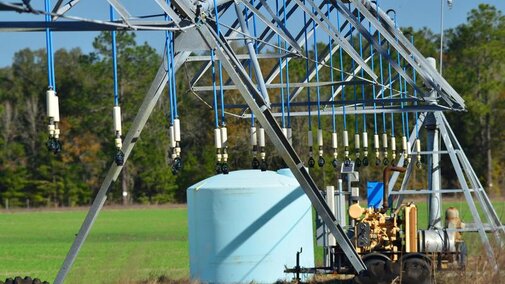Nebraska Extension is gearing up to train new and recertifying chemigators in 2024. Applying agrichemicals through an irrigation system (“chemigation”) can be advantageous — it offers a high degree of application uniformity, allows chemicals to be easily incorporated into soil, and causes less soil compaction than ground sprayer applications. However, this practice also comes with risks to health and the environment, especially our water resources. It is because of this that in Nebraska, a person must be trained and certified to chemigate. Any person wishing to chemigate must have a license and cannot chemigate under the license of another person.
Chemigation training is offered at face-to-face events and online. Either option can be utilized, regardless of whether you are seeking certification for the first time or renewing your certification. Both training formats include an exam that you must pass to become certified (or recertified).
Chemigation certification lasts for four years. You can check your certification status online.
Dates, locations and registration information for 2024 face-to-face chemigation training sessions are listed online. Please note that additional training sessions may be added to this list as time goes forward.
Over the past year or so, a team of extension educators and specialists has been working to update the curriculum for chemigation training. A new manual has been implemented and new videos are currently being developed to enhance the training.

